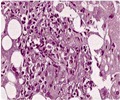Researchers at North Carolina State University have discovered why pregnant yellow fever mosquitoes (Aedes aegypti), one of the most important disease transmitters worldwide choose certain places to lay their eggs - a find that may be important to stop them from breeding.
They found that certain chemicals emanating from bacteria in water containers stimulate the female mosquitoes to lay their eggs.The female mosquitoes sense these chemical cues and decide that the water container is a preferable environment for their larvae to develop.
Lead authors, Dr. Charles Apperson and Dr. Coby Schal, professors of entomology at NC State, said that the findings could have implications for devising lures and traps that might help control yellow fever mosquito populations in equatorial locations around the globe, which would go a long way toward preventing important global diseases like dengue fever and yellow fever.
During the study, researchers found that yellow fever mosquitoes are particularly motivated to lay eggs in water containers that have just the right amounts of specific fatty acids associated with bacteria involved in the degradation of leaves and other organic matter in water.
The chemicals associated with the microbial stew are far more stimulating to discerning female mosquitoes than plain water, for example, or filtered water in which the bacteria once lived.
The study used a combination of approaches, including one in which the researchers presented female mosquitoes with different types of bacteria and bacterial extracts, and figured out "what turned the mosquitoes on" to lay their eggs.
Advertisement
Female mosquitoes are choosy when it comes to finding the proper egg-laying habitats. They do not normally lay all their eggs in one location, but instead exhibit a behaviour called "skip-oviposition," distributing eggs in multiple water-filled containers.
Advertisement
High concentrations of the brew gave the mosquitoes pause, causing them to withhold their eggs.
Lower concentrations were more convincing to mosquitoes than high concentrations, but still not as convincing as the proper amount - found to be only 10 nanograms in 30 millilitres of water.
The researchers said that mosquito larvae depend on microbes in their new homes for growth and development, so it is important for mothers to be discerning when it comes to living arrangements for their young.
Now, the researchers hope to use this choosiness against female mosquitoes.
According to researchers, stimulating females to lay eggs in water containers that have lethal chemicals or insect growth regulators could be another tool in the overall strategy kit to control mosquitoes - and dreaded diseases like dengue fever.
"We want to use the mosquito’s egg-laying behaviour against itself for control purposes," Apperson said.
The study is published in Proceedings of the National Academy of Sciences.
Source-ANI
SRM














